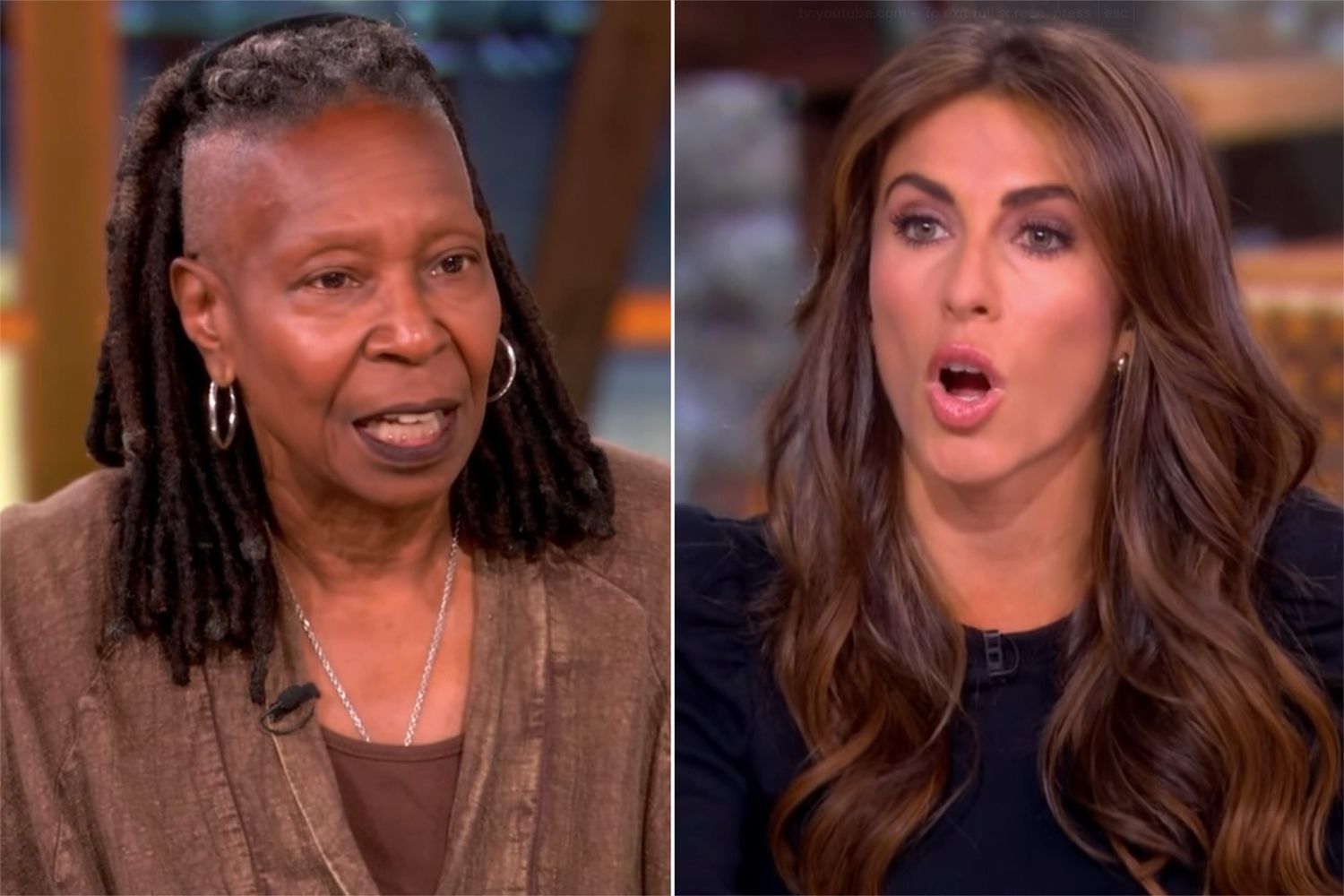Tensions flared on ‘The View’ as Whoopi Goldberg and Alyssa Farah Griffin engaged in a heated debate about the realities of living in the United States versus Iran. The discussion, sparked by concerns over human rights and political climates, quickly escalated into a personal and passionate exchange. This article breaks down the key arguments, underlying issues, and broader implications of this on-air clash, providing a comprehensive analysis of the viewpoints presented.
The importance of this debate lies in its reflection of larger societal discussions about national identity, human rights, and the role of government. The hosts’ contrasting perspectives shed light on the complexities of these issues, prompting viewers to consider their own beliefs and biases.
This article will delve into the specific points of contention, the historical context of the discussion, and the reactions from viewers and media outlets. By examining the nuances of this exchange, we aim to foster a deeper understanding of the challenges and opportunities facing both the United States and Iran.
The Spark: Iran, Israel, and International Law
The debate began with a discussion about Israel’s preemptive bombing of Iran and its legality under international law. Sunny Hostin raised concerns about the legality of Israel’s actions, setting the stage for a broader conversation about human rights and political stability in Iran.
Whoopi Goldberg emphasized the importance of global organizations like the United Nations in resolving such conflicts, highlighting the need for diplomatic solutions and adherence to international standards.
The initial focus on international law quickly shifted to a comparison of living conditions in the United States and Iran, as the hosts began to voice their personal experiences and perspectives.
Clash of Perspectives: Griffin vs. Goldberg
Alyssa Farah Griffin asserted that the Iranian regime in 2025 is far more oppressive than the United States, emphasizing restrictions on personal freedoms such as dress code.
“It is not even the same — I couldn’t step foot in this outfit in Iran right now.” – Alyssa Farah Griffin
Whoopi Goldberg countered by pointing out historical and ongoing injustices in the United States, particularly against Black people and the LGBTQ+ community. She stated that violence and discrimination rooted in hate are universal issues, regardless of the country.
“Let’s not do that, because if we start with that, we have been known in this country to tie gay folks to the car. I’m sorry, they used to just keep hanging Black people.” – Whoopi Goldberg
Deeper Dive: Freedom in 2025
Griffin argued that in 2025, the United States offers significantly more freedom than Iran, particularly for women and marginalized groups. She highlighted the restrictions on women’s dress and behavior in Iran as evidence of the regime’s oppressive nature.
Goldberg contested this view, arguing that systemic racism and violence in the United States create a climate of fear and inequality for many Americans, especially Black individuals. She questioned whether the United States truly offers equal protection and opportunity for all its citizens.
The exchange became increasingly tense as both hosts passionately defended their positions, struggling to find common ground.
The Impasse: ‘There’s No Way I Can Make You Understand’
As the debate continued, Whoopi Goldberg expressed frustration at her inability to convey her perspective to Alyssa Farah Griffin. She stated, “There’s no way I can make you understand,” signaling a breakdown in communication and a fundamental disagreement on the issues at hand.
Joy Behar attempted to bridge the gap by suggesting that Griffin try to understand the experiences of Black people in the United States. Behar acknowledged that while Iran may be “doing worse things,” the impact of systemic inequality in the U.S. is still deeply felt.
Despite Behar’s efforts, the impasse remained, leading to a segment wrap-up and a shift to other topics.
Larger Implications: Human Rights and National Identity
The debate on ‘The View’ reflects broader societal discussions about human rights, national identity, and the role of government. The hosts’ contrasting perspectives highlight the complexities of these issues and the challenges of finding common ground.
The exchange also underscores the importance of considering historical context when evaluating current events. Goldberg’s references to past injustices in the United States serve as a reminder that progress is ongoing and that systemic inequalities persist.
The debate’s impact extends beyond the studio, prompting viewers and media outlets to reflect on their own beliefs and biases.
Viewers React: A Divided Response
The on-air clash sparked a wide range of reactions from viewers, with some supporting Griffin’s emphasis on the oppressive nature of the Iranian regime and others siding with Goldberg’s focus on the ongoing struggles for equality in the United States.
Social media platforms became a battleground for competing viewpoints, as users debated the merits of each host’s arguments and shared their own personal experiences.
The divided response underscores the sensitive and complex nature of the issues discussed on ‘The View’ and the challenges of finding common ground in a polarized society.
Conclusion: A Continuing Conversation
The tense exchange between Whoopi Goldberg and Alyssa Farah Griffin on ‘The View’ highlights the ongoing debate about human rights, national identity, and the role of government. While the hosts failed to reach a consensus, their passionate arguments shed light on the complexities of these issues and the importance of continued dialogue.
The debate serves as a reminder that progress is ongoing and that systemic inequalities persist in both the United States and Iran. By considering different perspectives and engaging in respectful dialogue, we can work towards a more just and equitable world.
The conversation on ‘The View’ is just one example of the broader discussions taking place in society. It is up to each of us to continue these conversations and to work towards a better future for all.

Leave a Reply